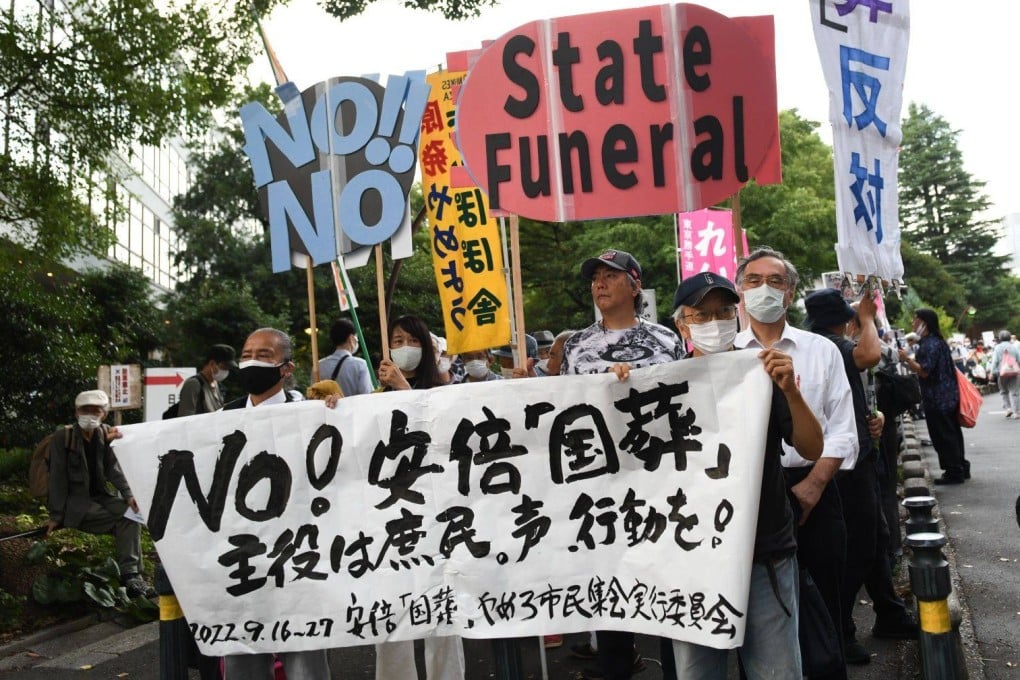Advertisement
Japan ups security for Shinzo Abe’s state funeral amid protests over US$20 million cost
- Police out in force for Tuesday’s event, after elderly man set fire to himself in protest against government’s decision to grant Abe a state funeral
- Some members of imperial family to attend, with US Vice-President Kamala Harris and French President Emmanuel Macron among over 190 foreign dignitaries invited
Reading Time:3 minutes
Why you can trust SCMP

Julian Ryallin Tokyo
Security is being dramatically stepped up in Japan in the days leading up to the state funeral of slain former prime minister Shinzo Abe, even as debate over whether a leader who divided public opinion deserves such an honour continues to rage.
The funeral and a memorial service for Abe, who was prime minister for a record eight years and 267 days over two spells before stepping down in September 2020, is expected to take place on Tuesday at the Nippon Budokan hall, close to Yasukuni Shrine in central Tokyo.
Police are already out in force at the primary venues for the event as well as at train stations and other key locations across the city.
Advertisement
Authorities’ concerns are warranted. On Wednesday morning, an elderly man set fire to himself close to the prime minister’s official residence in Tokyo. He left a note indicating he intended to kill himself to protest against the decision to grant Abe a state funeral. The fire was extinguished and the man was later taken to a nearby hospital.
The government is nevertheless pushing ahead with plans for the ceremony, with more than 700 guests expected. US Vice-President Kamala Harris and French President Emmanuel Macron are among the more than 190 foreign dignitaries invited.
Advertisement
Advertisement
Select Voice
Select Speed
1.00x